- Home
- Rick Mofina
The Panic Zone Page 5
The Panic Zone Read online
Page 5
“No, some of the communication from one group to another is through the spam. We know nothing of the weapon.”
“Who is behind it?”
“We don’t know. We were paid great sums through gobetweens.”
“Who are they?”
“We don’t know.”
“What is the weapon—is it planes?”
“No.”
“Bombs? Suicide bombings?”
“No.”
“Hostage takings?”
“No.”
“Nuclear or chemical, what is the weapon?”
“I don’t know.”
“Who is behind it?”
“I don’t know.”
“When will the attack take place?”
“Soon.”
“When? Days? Weeks? Months?”
“They told us that it is too far along for anyone to stop them.”
9
Rio de Janeiro, Brazil
A phone rang and Jack Gannon awakened in a strange room. He looked at the walls, the sunlight streaming through the shutters.
He lifted the phone.
“Good morning, Mr. Gannon. This is your wake-up call.”
“Thank you.”
Piece by piece, it all came back to him as he rubbed his face. He took two aspirin, shaved, showered, dressed, grabbed some breakfast, got his bag and headed to the bureau. When he arrived, Luiz, the news assistant, was the only person there.
“What’s going on, Luiz? Where is everybody?”
“Much has happened. Mr. Archer is interviewing an official with the Departmento de Polícia Federal.”
“They’re like our FBI and Estralla is with the Civil Police?”
“Yes. And Mr. Porter and Ms. Turner are interviewing people about the Colombian narco connection to the bombing.”
“Porter said the victim list might be released today?”
“Yes, but not yet. Not officially. Mr. Archer wants me to help you follow today’s major story. JB has obtained the list.”
“JB—what’s that and what did they get?” Gannon switched on his laptop.
“JB has broken the story identifying all the bombing victims,” Luiz held up a newspaper, Jornal do Brasil, with the main headline: Caras dos Mortos, over a gallery of ten head shots superimposed on a photo of the ruins of the Café Amaldo.
Gannon did not have to understand Portuguese to see that the newspaper had beaten its competition by obtaining the victim list in advance.
Gabriela Rosa and Marcelo Verde were on the newspaper’s front page, staring back from WPA file photos.
Luiz blinked back tears, staring at the newspaper.
“Seeing it now in the paper like this is hard,” Luiz said. “Gabriela was kind to me, she helped me write travel features for WPA. She took me out for lunch on my birthday.”
Luiz gazed at Gabriela’s empty desk, orderly and uncluttered compared with Marcelo’s desk. His was heaped with magazines, manuals and empty food wrappers. Marcelo’s monitor was feathered with two dozen small yellow notes.
“Marcelo was a consummate photographer, an artist who loved his work. He was fun, always joking but so forgetful with many things. He needed all these notes.”
Gannon studied the Jornal do Brasil and the faces of the ten victims, five men and five women. There were small bios about each of them. It was good work. He tapped the picture of Angella Roho-Ruiz, a beautiful woman in her twenties, smiling under the headline: Era uma Execução do Narco?
Luiz nodded.
“That is Paulo’s daughter on a shopping vacation in Bogotá, Colombia. The headline Era uma Execução do Narco? is asking, Was this a narco execution?”
Gannon took a moment to process the growing speculation that the bombing was the result of a drug war.
Was everyone else right about who was behind it?
Was he an idiot to question reporters who worked, lived and breathed in Brazil everyday? Was he out of his league?
Gannon looked at the other victims. Was Gabriela’s source among them? Maybe they’d met and the source left? Or maybe the source never showed up at all?
The sheaf of charred and bloodied papers from the alley sat next to his laptop. If he could connect the victims to any of these documents, it would be a key puzzle piece.
First, he had to take precautions. His little adventure from last night underscored the need to protect his documents, for now.
“Luiz, will you do a confidential favor for me?”
“Of course.”
“Copy these pages, keep a set in a safe place, but tell no one. Do you swear to me you will do this?”
“I like working with you, Mr. Gannon. You’re different from the others. I give you my word I will do as you ask.”
“Good, these pages could be very important, we need to be careful. But I don’t want you to tell anyone. Do you understand?”
“Yes.”
Luiz flipped through the papers. “It won’t take long.” He disappeared into the small supply closet. As the photocopier hummed, Gannon reviewed the faces in the newspaper and tried to think of a strategy to determine the café’s seating situation at the time of the explosion. Maybe talking to the families of the victims would be a good start.
Luiz returned the original documents and Gannon put them in his bag.
“I’ve hidden my copies in our supply room,” Luiz said. “I will not speak of them to anyone.”
The bureau’s door opened and two uniformed police officers entered. They were grim faced, and spoke in gruff, rapid Portuguese to Luiz before they approached Gannon.
“Jack Gannon, American citizen of New York City, U.S.A.?” One of the cops stood before Gannon, unfolded a single sheet of paper, glanced at it, then at Gannon.
“Yes.”
“Your identification, please?”
Gannon retrieved his passport from his computer bag. The officer looked at it, then tucked it in his breast pocket and snapped the flap closed.
“You will come with us to police headquarters.”
“Why, what’s this about?”
“For questioning.”
“Questioning? About what? Do you have a warrant?”
“No warrant, come with us.”
“Not without a warrant, or lawyer.”
“You will come with us now.”
“Am I being charged? Am I under arrest?”
“You will cooperate and come with us now, or you will face immediate expulsion from Brazil.”
The second officer stepped around Gannon. Their body language was loud and clear. Gannon looked at Luiz, then back at the cop and got his bag.
“I will cooperate. Luiz, call Frank, tell him to alert New York and the U.S. consulate that I have been arrested without a warrant.”
10
The officers took Gannon to a patrol car in front of the building.
They took his cell phone, his bag, searched it for weapons, locked it in the trunk, then held the rear door open for him. The back reeked of lemon-scented cleaner, perspiration and vomit.
The officers laughed at a private joke as they drove.
The radio issued coded transmissions. As the cop in the passenger seat worked on the keyboard of the car’s small computer terminal, Gannon studied himself in the rearview mirror. Day two in Brazil and here he was in the backseat of a Rio police car. The officers didn’t speak to him as they sailed through Centro’s traffic. He had spent enough time on the crime beat in Buffalo to know that he was nothing more than a package to be delivered. They hadn’t put him in cuffs. They hadn’t been rough. This had to be about last night, or something about Gabriela and Marcelo.
He’d find out soon enough.
They went several blocks before turning onto Rua da Relação and stopping in front of a fourteen-story building—Gannon counted the levels—that looked like an attempt at 1970s Soviet disco-era architecture.
The sign in front said, Polícia Civil.
The officers got his bag and escorted him
into a packed elevator. He’d lost track of the floors by the time they reached their destination.
They went down a hall to the squad room. Plainclothes detectives were talking on the phone, reading reports or interviewing people. Gannon’s escorts stopped at an empty desk and put him in a folding hard-back chair beside it.
“Don’t move.”
“What about my passport and bag?”
They ignored him and walked away.
Gannon looked at the desk pushed against the wall to the left that displayed a framed degree from the John Jay College of Criminal Justice in Manhattan. He couldn’t read the name on it.
Under the degree was a corkboard with a calendar, along with memos and an enlarged photograph of a man and boy holding up fish by a mountain lake. The man held up a tiny fish while the boy struggled with a catch that was over two feet long.
Gannon recognized the man as Roberto Estralla. The boy looked to be about ten and had Estralla’s smile. Gannon glanced at the desk, a copy of today’s Jornal do Brasil with the ten victims, file folders, a notebook, and something titled Café Amaldo, which looked like a floor plan.
Gannon was about to lean in for a better view when a hand reached across him from behind and snapped a business card on the table for Hotel de nove palmas.
His hotel.
Estralla then dropped Gannon’s bag and cell phone on his desk before he deposited himself into his chair. He was wearing jeans, a T-shirt, his ID and a shoulder holster holding a pistol.
He set Gannon’s passport on the desk, then tossed a piece of gum into his mouth, chewing hard as he assessed Gannon.
“Are you comfortable, Mr. Gannon?”
“I’d like to know what’s happening. My bureau in New York will be notifying the U.S. consulate.”
“Last night,” Estralla said, “officers at the bomb scene chased a man acting suspiciously in an alley. This hotel card fell from his pocket as he fled. They saw him get into a taxi then contacted the company. After further investigation at your hotel this morning, and by the description and time, we’ve concluded it was you, Jack Gannon.”
Estralla leaned forward.
“What were you doing at the crime scene?”
Gannon’s pulse quickened as the circumstances rose around him. No matter what explanation he offered, he would lose. The threat of expulsion was real. He glanced at Estralla’s fishing photo, reasoning Estralla had a human side. All he could do was play to it.
“When I met you at the scene,” Gannon said, “and later watching the TV news reports, I noticed the wind was scattering papers from the explosion. So I went to the alleys nearby and collected all the papers I could find.”
“These are the papers?”
Estralla removed the originals from Gannon’s bag and began flipping through them carefully.
“I am seizing these.”
“But they’re mine.”
Estralla shrugged.
“I don’t understand why your crime scene people did not protect this kind of potential evidence,” Gannon said.
“They did.”
“Did they? Their work was sloppy. It’s probably why you have trouble clearing crimes down here. That and the reputation Brazilian police have with human rights groups.”
Estralla’s eyes narrowed at Gannon.
“Are the LAPD and the NYPD without sin? And didn’t London police shoot dead an innocent man? A Brazilian student, they wrongly suspected of being a terrorist? All police should not be judged by the actions of a few.”
Gannon chided himself for saying something so asinine to the cop holding his passport.
“I apologize—I was out of line,” Gannon said. “Maybe it’s the stress of two murdered colleagues and of flying down here on short notice where I don’t know the language or the culture, or much else.”
Estralla resumed chewing his gum and reappraised Gannon.
“We had nets on the scene, but removed them to take photographs and give the dog unit access. We were slow to return them.”
“Look,” said Gannon. “Now that I’ve explained everything, may I leave with my belongings?”
“No.”
“Why not?”
“I have the impression you know more about why Gabriela Rosa and Marcelo Verde were at the café, more than you’re telling me.”
“If I help you, will you help me? Not as cop to reporter, but as two men trying to learn the truth about the murders?”
“We make no deals with journalists.”
“I think you do.” Gannon tapped the Jornal do Brasil.
Estralla’s chewing slowed as he thought.
Gannon took his shot at the cop’s human side.
“So, how did you come to attend John Jay in Manhattan?”
“My father was a diplomat at the UN. We lived in New York for ten years.”
“Then you know the city better than I do. I moved there from Buffalo a few months ago.”
“Home of the Bills.”
“You a Bills fan? You like American football?”
Estralla shifted his weight in his chair and changed the subject.
“At this moment, my partner is preparing the documentation for your expulsion. You should tell me what you know now.”
Gannon let a few moments pass. This was it.
“There’s a small recorder in my bag, may I play it for you?”
Estralla nodded and Gannon played Gabriela’s last message.
“We were aware of the message,” Estralla said. “Gabriela’s husband transcribed it for us but said that in his grief he accidentally erased it.”
“That may be, but he forwarded it to a WPA colleague. I recorded it.”
Gannon played it again for Estralla who listened intently.
“The part about documents is important,” Gannon said. “I think these documents can lead us to the source. Her source could have been among the dead or injured. Did you create a seating map, showing where everyone was sitting at the time of the blast?”
Estralla thought, then placed a call, speaking quickly in Portuguese before coming back to Gannon.
“Nothing we discuss must be published. We can charge you with tampering with a crime scene. Do you understand?”
“I do.”
“There are many theories we and the DFP are following. Because Angella Roho-Ruiz is among the victims, the narco-terrorist link is one. But criminal intelligence from the favelas to Bogotá has yielded nothing to back it up.”
“What are the other theories?”
“An employee who was fired last month for stealing cash threatened to come back to the café and kill everyone. We have yet to find this ex-worker and confirm his whereabouts.”
“That’s it?”
“The restaurant was badly managed and carrying massive debts. But it was heavily insured. We received a tip that one of the owners had made inquires to criminals about arson bombs.”
“Does the physical evidence point to anything, the type of bomb? The materials used? Is there a signature?”
“We’ve found nothing conclusive so far. It was very professional.”
“And the seating map?”
Estralla opened a folder and showed him the detailed diagram.
“This was composed based upon where we found the bodies, food orders and our subsequent interviews with the survivors.”
Gannon saw circles representing the tables, and the names, as Estralla explained the symbols for the dead and the injured.
“Marcelo Verde was here, alone.” Estralla touched the table by the window overlooking the patio. “We found his camera. It was destroyed by flying debris and the fire. And Gabriela was here.”
Estralla pointed at the square representing her table. No other names were assigned to it.
“She was alone?” he asked.
“No one can place anyone there at the time of the blast. Some recalled seeing a woman with Gabriela, others contradicted them. It means we still have a lot of work to do.”
&nb
sp; Estralla passed Gannon his bag and stood.
“The officers will return you to your bureau.”
“May I have my passport?”
“No. Your visit remains under police scrutiny.”
“How about a copy of that floor plan?”
Estralla looked at it, chewing his gum thoughtfully.
“From one Bills fan to another?” Gannon asked.
11
Big Cloud, Wyoming
Emma didn’t know how long the sedative had made her sleep.
She woke up alone to battle her grief.
It’s a dream. Wake up.
If she could stop thinking she could stop it from being real.
Emma stared at the ceiling, at the corners where the drab paint had dried and fractured. Suddenly those tiny lines of cracked paint moved, growing until they raced down the walls like fingers of lightning and pierced her heart, forcing her to tense with pain.
My husband. My son.
It can’t be.
She could still feel Joe’s hand; his shirt, his favorite faded denim shirt, softened by a thousand washings. She could feel his skin, smell his cologne. She still tasted his cheek on her lips.
And Tyler.
Her angel laughing in the brilliant sun before everything exploded. Emma smelled gas, heard Tyler screaming, and in the chaos, she saw someone take him to safety.
She saw it!
Then the ground shook, the air ignited and everything burned.
It can’t be happening again.
Fire had first devastated Emma’s world all those years ago, when she finished college in Chicago. Her mother and father had driven from Iowa for her graduation.
“We’re so proud of you, kiddo.” Her mother’s hug was crushing.
The day after graduating, Emma flew to Boston to start her new job with a travel agency while her parents took a vacation drive home. They’d stopped in Wisconsin at an older motel. Her dad loved them. “They’ve got character, not like the chains. All clones.”
But at this one the owner had scrimped on repairs. The new air conditioners strained the outdated wiring, which resulted in a fire that killed Emma’s mother, father, and a family with three children from North Dakota.
After the tragedy, Emma went through the motions of living, thinking she would not survive. Friends encouraged her to keep going and she used the insurance money to travel and write articles.

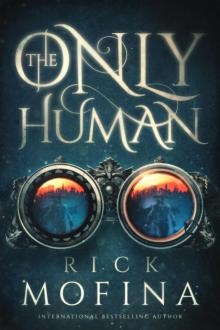 The Only Human
The Only Human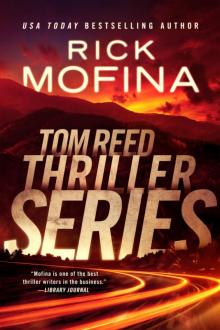 Tom Reed Thriller Series
Tom Reed Thriller Series![[Tom Reed and Walt Sydowski 04.0] No Way Back Read online](http://i1.bookreadfree.com/05/tom_reed_and_walt_sydowski_04_0_no_way_back_preview.jpg) [Tom Reed and Walt Sydowski 04.0] No Way Back
[Tom Reed and Walt Sydowski 04.0] No Way Back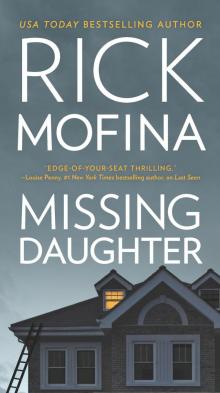 Missing Daughter
Missing Daughter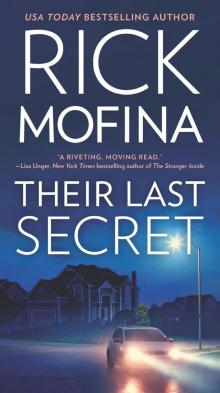 Their Last Secret
Their Last Secret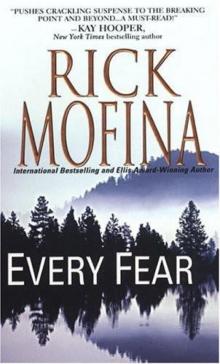 Jason Wade - 02 - Every Fear
Jason Wade - 02 - Every Fear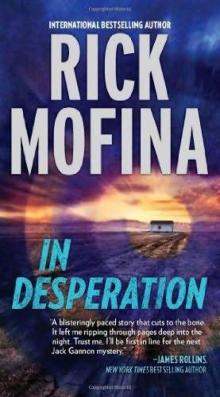 In Desperation
In Desperation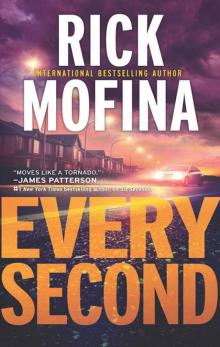 Every Second
Every Second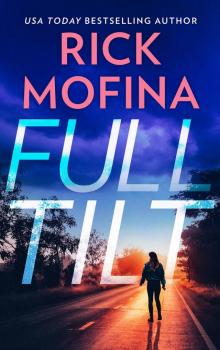 Full Tilt
Full Tilt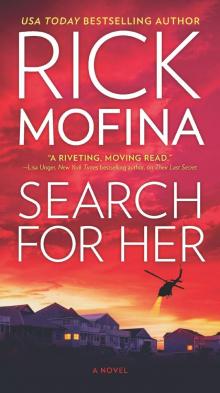 Search for Her
Search for Her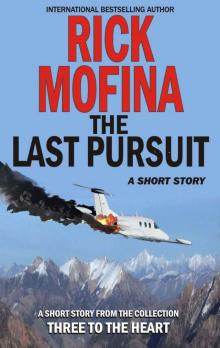 The Last Pursuit
The Last Pursuit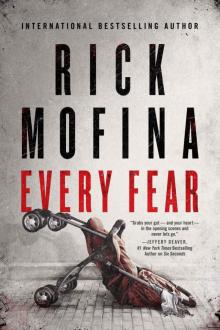 Every Fear
Every Fear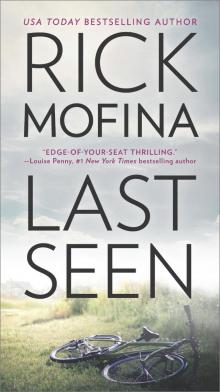 Last Seen
Last Seen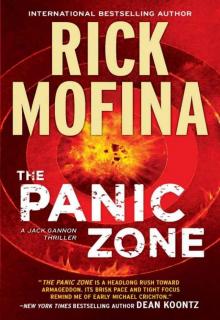 The Panic Zone
The Panic Zone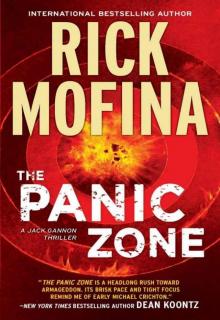 The Panic Zone jg-2
The Panic Zone jg-2 Free Fall
Free Fall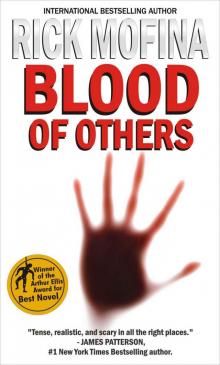 Blood of Others
Blood of Others![[Jason Wade 02.0] Every Fear Read online](http://i1.bookreadfree.com/i1/03/31/jason_wade_02_0_every_fear_preview.jpg) [Jason Wade 02.0] Every Fear
[Jason Wade 02.0] Every Fear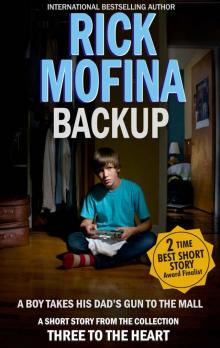 Backup
Backup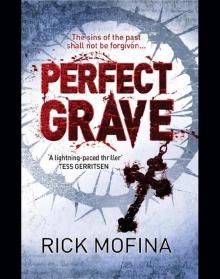 Perfect Grave
Perfect Grave Into the Dark
Into the Dark Whirlwind
Whirlwind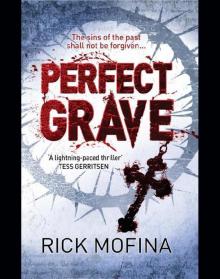 Perfect Grave jw-3
Perfect Grave jw-3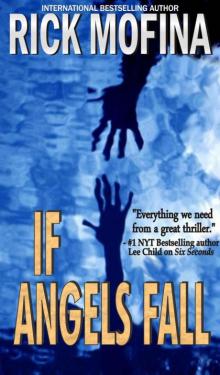 If Angels Fall (tom reed and walt sydowski)
If Angels Fall (tom reed and walt sydowski)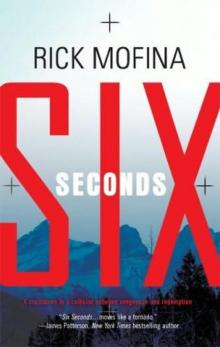 Six Seconds
Six Seconds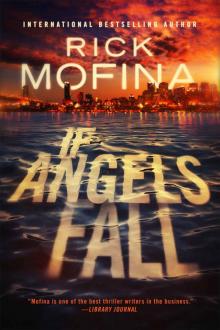 If Angels Fall
If Angels Fall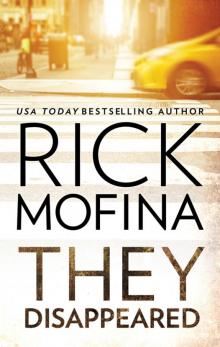 They Disappeared
They Disappeared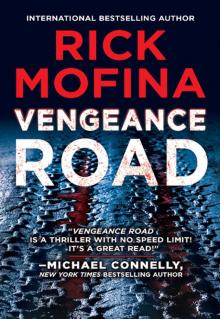 Vengeance Road
Vengeance Road Before Sunrise
Before Sunrise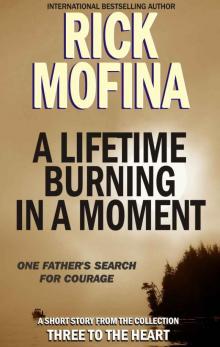 A Lifetime Burning in a Moment
A Lifetime Burning in a Moment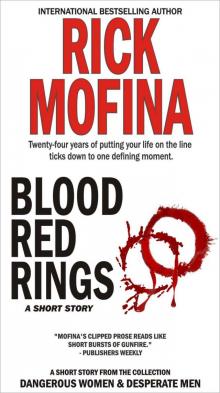 Blood Red Rings (Dangerous Women & Desperate Men)
Blood Red Rings (Dangerous Women & Desperate Men)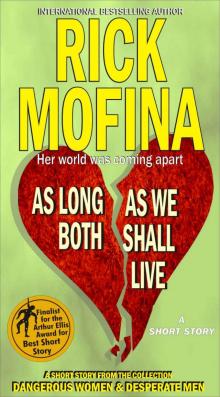 As Long As We Both Shall Live (Dangerous Women & Desperate Men)
As Long As We Both Shall Live (Dangerous Women & Desperate Men)![[Tom Reed and Walt Sydowski 01.0] If Angels Fall Read online](http://i1.bookreadfree.com/i2/04/12/tom_reed_and_walt_sydowski_01_0_if_angels_fall_preview.jpg) [Tom Reed and Walt Sydowski 01.0] If Angels Fall
[Tom Reed and Walt Sydowski 01.0] If Angels Fall Cold Fear
Cold Fear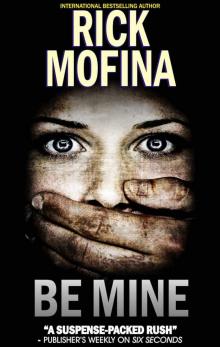 Be Mine
Be Mine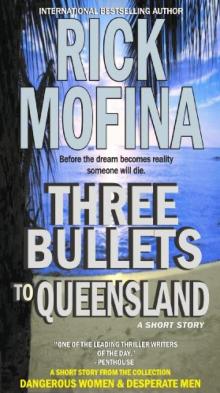 Three Bullets To Queensland
Three Bullets To Queensland